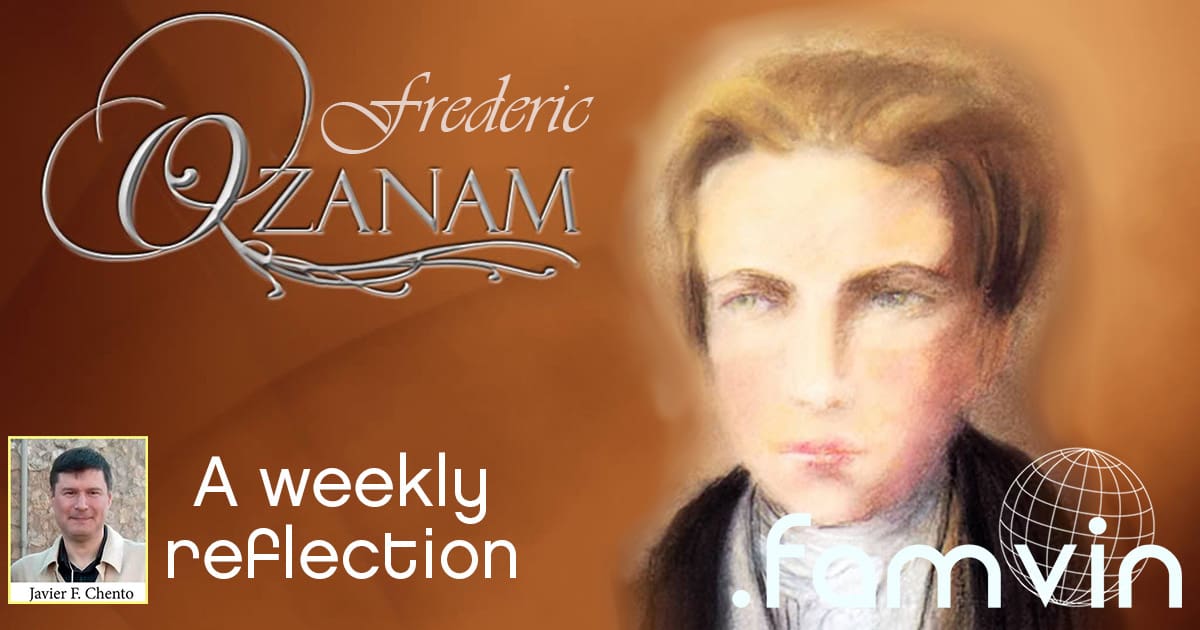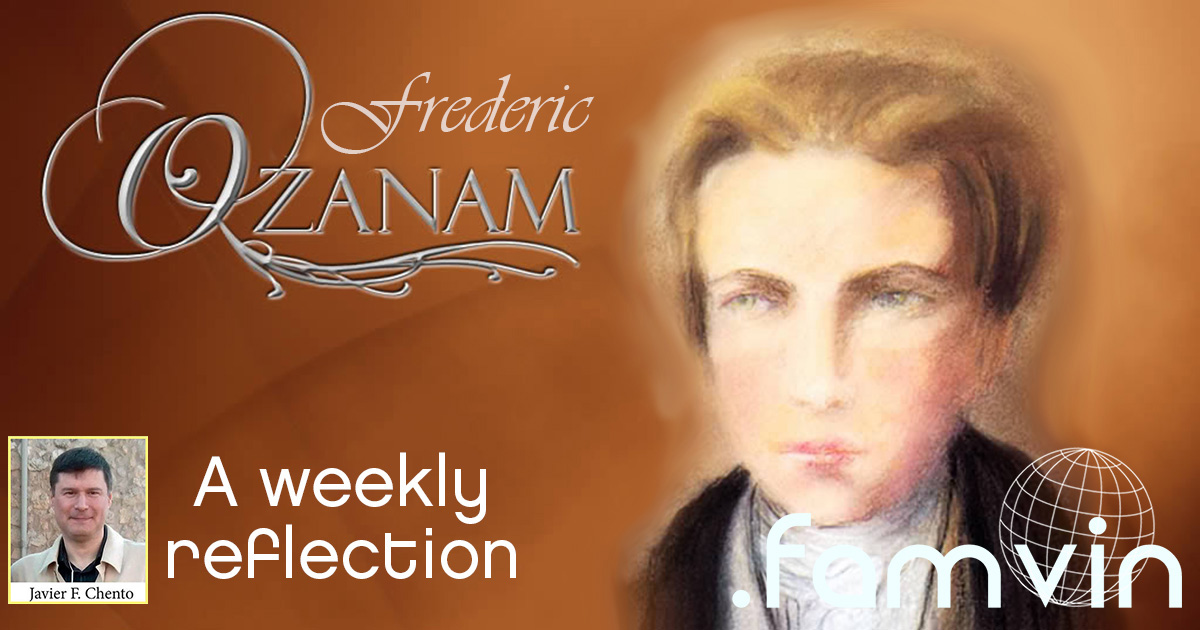It Is Better to Do Little than to Do Nothing • A Weekly Reflection with Ozanam
Representatives of the people,
Do not say that you lack inspiration. […] We do not ignore the obstacles or the rivalries, nor the imperfections that stop each project and that perpetuate the debates. But we have never seen that great powers were instituted by easy circumstances; we consider that the rivalries of self-esteem should be erased before the public necessity and that, finally, it is better to do something, though in an imperfect form, than to do nothing.

Frederic Ozanam, article «Aux gens de bien» [To good people], in L’Ère Nouvelle, nº 151, September 15, 1848.
Reflection:
- Today’s text is a continuation of last week’s. Both were published in the article “Aux gens de bien” [To good people] that appeared in the newspaper L’Ere Nouvelle a few months after the June insurrection in France. In it, before the devastating reality of poverty that plagued Paris in particular and France in general, Frederic addressed several social classes (the rich, the priests, the politicians) asking them to do something to solve the social issue.
- Yesterday and today, the vast majority of people want the members of the ruling classes to be, above all, honest and efficient managers, who find solutions to the real problems of the people: that is what they were chosen for. Unfortunately, reality shows us that, in many cases, politicians dedicate an important part of their time to unsuccessful debates between them and to settle (them or their party) in power. Corruption and the pursuit of one’s own well-being are problems that we see clearly in many social strata, one of them the politician.
- Exercising political positions is not an easy task, as Ozanam recognizes. But the minimum that can be asked of anyone who wishes – and is capable – to exercise these functions is to do it honestly. Frederic defended democracy based on Christian values, with moral leaders who were able to offer solutions to situations of misery and injustice suffered by workers and needy. That is also what we want, more than a century and a half later, for those who exercise these functions nowadays.
- Doing nothing in the face of social problems is the greatest failure for a politician, because they have not been chosen to discuss and confront each other, but to solve the problems. Thus, reading this paragraph of Ozanam, in particular the sentence “it is better to do something, though in an imperfect form, than to do nothing,” we wonder if the ruling classes are really doing it; in general, we could say the same of any person who exercises a position of responsibility, whether political or not, in any social sphere … also within our Vicentian Family.
Questions for dialogue:
- How do we react to the obstacles that can sometimes overwhelm us?
- Do we let our personal frictions, our “rivalries,” as Frederic says, affect our service to the impoverished?
- Frederic says in this text: “it is better to do something, though in an imperfect form, than to do nothing.” Do I agree? Do we put this into practice?
Javier F. Chento
![]() @javierchento
@javierchento
![]() JavierChento
JavierChento








0 Comments